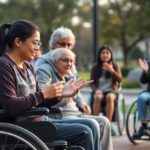international day of older persons
As you learn about the United Nations observance, you’ll discover the significance of the International Day of Older Persons. You will find that this day aims to raise awareness about the issues affecting the elderly, including ageism, poverty, and social isolation. By understanding these challenges, you can support positive change and promote a more inclusive society for your community’s older adults.
History
A growing awareness of the importance of aging populations has led to increased attention being paid to the needs and rights of older persons. As you investigate into the history of the International Day of Older Persons, you will discover that it is rooted in a complex array of social, economic, and demographic factors. You will learn about the various efforts that have been made to address the challenges faced by older persons and to promote their well-being. The history of this day is a testament to the growing recognition of the invaluable contributions that older persons make to their families, communities, and societies as a whole.
Background
Ascending to a position of prominence in the global agenda, the issue of aging has become a major concern for governments, international organizations, and civil society. As you explore the background of the International Day of Older Persons, you will find that it is closely tied to the rapid aging of populations in many parts of the world. This phenomenon has significant implications for healthcare systems, social security, and economic development. You will also discover that the rights and dignity of older persons have been a focus of attention, with efforts being made to promote their inclusion and participation in society. The background to the International Day of Older Persons is characterized by a growing awareness of the need to address the challenges faced by older persons and to harness their experience and wisdom.
You will find that the background to the International Day of Older Persons is also marked by a number of milestones, including the adoption of the United Nations Principles for Older Persons in 1991. These principles emphasize the importance of independence, participation, care, self-fulfillment, and dignity for older persons. As you continue to explore the background of the International Day of Older Persons, you will learn about the efforts that have been made to promote the health and well-being of older persons, including the development of age-friendly cities and communities. The role of technology in improving the lives of older persons has also been a focus of attention, with innovations such as telemedicine and assistive technologies holding great promise.
As you examine the background of the International Day of Older Persons, you will discover that it is also characterized by a growing recognition of the diversity of older persons. You will learn about the different experiences and perspectives of older persons from diverse backgrounds, including older women, older persons with disabilities, and older persons from indigenous communities. The background to the International Day of Older Persons is also marked by a number of challenges, including ageism, poverty, and social isolation, which can have a profound impact on the health and well-being of older persons. As you continue to explore the background of the International Day of Older Persons, you will find that it is a complex and multifaceted issue that requires a comprehensive and nuanced approach.
Above all, the background to the International Day of Older Persons is a testament to the resilience and strength of older persons. You will find that older persons are actively engaged in their communities, making valuable contributions to volunteer work, mentoring, and other activities. As you reflect on the background of the International Day of Older Persons, you will be struck by the importance of promoting the rights and dignity of older persons, and ensuring that they have access to the resources and support they need to thrive. The background to the International Day of Older Persons is a call to action, urging you to get involved and make a difference in the lives of older persons.
Establishment of the International Day of Older Persons
Against the backdrop of a rapidly aging population, the United Nations General Assembly decided to establish the International Day of Older Persons in 1990. As you learn about the establishment of this day, you will discover that it was designed to raise awareness about the issues faced by older persons and to promote their rights and dignity. You will find that the International Day of Older Persons is celebrated on October 1st every year, and is an opportunity for governments, organizations, and individuals to come together and promote the well-being of older persons.
As you explore the establishment of the International Day of Older Persons, you will learn about the key role played by the United Nations in promoting the rights and dignity of older persons. You will discover that the UN has been actively engaged in addressing the challenges faced by older persons, including poverty, social isolation, and ageism. The establishment of the International Day of Older Persons is a testament to the UN’s commitment to promoting the well-being of older persons and to ensuring that they have access to the resources and support they need to thrive. As you continue to learn about the establishment of the International Day of Older Persons, you will find that it is a call to action, urging you to get involved and make a difference in the lives of older persons.
Against the odds, the International Day of Older Persons has become a major event on the global calendar, with events and activities taking place in countries around the world. You will find that the theme of the International Day of Older Persons changes each year, and is designed to highlight a particular issue or challenge faced by older persons. As you learn about the establishment of the International Day of Older Persons, you will discover that it is a time for celebration, reflection, and action, and is an opportunity for you to make a difference in the lives of older persons.
As you investigate deeper into the establishment of the International Day of Older Persons, you will find that it is a complex and multifaceted issue that requires a comprehensive and nuanced approach. You will learn about the different ways in which the International Day of Older Persons is celebrated around the world, and the various activities and events that take place to promote the rights and dignity of older persons. The establishment of the International Day of Older Persons is a testament to the power of collective action, and demonstrates the impact that can be achieved when people come together to promote a common cause.
Further to the establishment of the International Day of Older Persons, you will find that it has had a profound impact on the lives of older persons around the world. The day has raised awareness about the issues faced by older persons, and has promoted their rights and dignity. As you continue to learn about the International Day of Older Persons, you will discover that it is a time for celebration, reflection, and action, and is an opportunity for you to make a difference in the lives of older persons. The future of the International Day of Older Persons looks bright, with growing recognition of the importance of promoting the well-being of older persons, and ensuring that they have access to the resources and support they need to thrive.
Significance
There’s no denying that older persons play a vital role in your society, and their contributions should not be overlooked. As you celebrate the International Day of Older Persons, you are reminded of the importance of recognizing and appreciating the elderly. You will come across numerous stories of older individuals who have overcome incredible challenges and achieved great things, and their experiences can serve as a source of inspiration for you. By acknowledging the value of older persons, you can help to promote a more inclusive and respectful society, where everyone is treated with dignity and respect, regardless of their age. You will also be able to learn from their life experiences and wisdom, which can be a valuable resource for you and your community.
As you explore deeper into the significance of this day, you will discover that it’s not just about honoring older persons, but also about addressing the challenges they face. You will find that many older individuals struggle with poverty, social isolation, and age-related diseases, which can have a significant impact on their quality of life. By raising awareness about these issues, you can help to bring about positive change and ensure that older persons have access to the support and resources they need to thrive. You will also be able to promote a positive image of aging, which can help to break down stereotypes and age-related stigma and encourage you to view aging as a natural and valuable part of life.
As you continue to explore the significance of the International Day of Older Persons, you will realize that it’s an opportunity for you to make a positive impact on the lives of older individuals in your community. You can do this by volunteering your time, donating to organizations that support older persons, or simply by spending time with an older family member or friend. By taking these actions, you can help to improve the lives of older persons and promote a more age-friendly society, where everyone can thrive and reach their full potential. You will also be able to learn from the experiences of older persons and gain a new perspective on life, which can be a valuable and enriching experience for you.
Importance of Recognizing Older Persons
Against the backdrop of an aging population, you are becoming increasingly aware of the need to recognize and appreciate older persons. As you learn more about the importance of recognizing older persons, you will discover that it’s necessary for promoting a sense of belonging and connection among older individuals. You will find that older persons who feel valued and respected are more likely to stay engaged and active in their communities, which can have a positive impact on their physical and mental health. By recognizing the contributions of older persons, you can help to promote a sense of purpose and fulfillment, which is necessary for their well-being and quality of life.
Against the tide of age-related stigma and stereotypes, you are working to promote a positive image of aging. As you recognize the importance of older persons, you will be able to challenge negative attitudes and stereotypes that can be damaging and limiting. You will find that older persons are not just recipients of care, but also active contributors to their communities, and their experiences and wisdom can be a valuable resource for you. By recognizing the importance of older persons, you can help to promote intergenerational understanding and cooperation, which is necessary for building a more harmonious and inclusive society.
Against the odds, many older persons are overcoming incredible challenges and achieving great things. As you recognize the importance of older persons, you will be inspired by their resilience and determination. You will find that older persons are not just surviving, but thriving in their communities, and their stories can serve as a source of inspiration for you. By recognizing the importance of older persons, you can help to promote a culture of respect and appreciation, which is necessary for building a more compassionate and caring society.
Impact on Society
Impacting every aspect of your community, the International Day of Older Persons is an opportunity for you to make a positive difference in the lives of older individuals. As you consider the impact of this day on society, you will realize that it’s not just about honoring older persons, but also about promoting social change. You will find that the day can help to raise awareness about age-related issues, such as elder abuse, ageism, and social isolation, which can have a significant impact on the well-being and quality of life of older persons. By promoting a positive image of aging, you can help to challenge negative attitudes and stereotypes, and promote a more inclusive and respectful society.
Impacting the lives of older persons in your community, the International Day of Older Persons is an opportunity for you to make a lasting difference. As you consider the impact of this day on society, you will realize that it’s not just about one day, but about creating a lasting legacy. You will find that the day can help to inspire positive change, promote intergenerational understanding and cooperation, and encourage you to view aging as a natural and valuable part of life. By working together, you can help to build a more age-friendly society, where everyone can thrive and reach their full potential.
Impactful and inspiring, the stories of older persons can serve as a source of motivation for you. As you consider the impact of the International Day of Older Persons on society, you will realize that it’s not just about recognizing older persons, but also about promoting a culture of respect and appreciation. You will find that the day can help to challenge negative attitudes and stereotypes, promote social inclusion and participation, and encourage you to value the contributions of older persons. By promoting a positive image of aging, you can help to create a more harmonious and inclusive society, where everyone can thrive and reach their full potential.
The impact of the International Day of Older Persons on society is multifaceted and far-reaching. The day can help to raise awareness about age-related issues, promote intergenerational understanding and cooperation, and encourage you to view aging as a natural and valuable part of life. As you consider the impact of this day, you will realize that it’s not just about recognizing older persons, but also about creating a more inclusive and respectful society, where everyone can thrive and reach their full potential. You will also be able to learn from the experiences of older persons and gain a new perspective on life, which can be a valuable and enriching experience for you, and you will be able to make a positive impact on the lives of older individuals in your community.

Challenges
While navigating the complexities of an aging population, you will encounter numerous obstacles that can have a significant impact on your life and the lives of your loved ones. As you consider the challenges associated with aging, it is imperative to examine the various factors that contribute to these issues. You will find that the aging population is a significant concern, and understanding the complexities of this demographic shift is vital to addressing the challenges that come with it.
Aging Population
Across the globe, you are likely to notice a significant increase in the number of older adults, and this trend is expected to continue in the coming years. As you consider the implications of an aging population, you should be aware that approximately 727 million people worldwide are aged 65 or older, and this number is projected to reach 1.5 billion by 2050. You may be surprised to learn that this demographic shift is not limited to developed countries, as many developing nations are also experiencing rapid aging. As you research deeper into the issue, you will discover that the aging population poses significant challenges, including increased healthcare costs, social isolation, and pressure on pension systems.
You will find that as you age, you may face age-related diseases, such as dementia, cancer, and chronic conditions, which can significantly impact your quality of life. Furthermore, you may experience social isolation, which can lead to depression, anxiety, and other mental health issues. As you consider the challenges associated with aging, you should be aware that early intervention and preventive measures can help mitigate these risks. You can take steps to maintain your physical and mental health, such as engaging in regular exercise, following a healthy diet, and staying socially connected.
As you navigate the complexities of an aging population, you will encounter various socio-economic factors that can impact your life. You may face discrimination, stereotyping, and ageism, which can limit your opportunities and affect your well-being. Moreover, you may experience financial insecurity, poverty, and limited access to healthcare, which can exacerbate the challenges associated with aging. You should be aware that strong social support networks, access to education and training, and inclusive policies can help address these issues and promote healthy aging.
Social and Economic Challenges
Around the world, you are likely to notice that older adults face various social and economic challenges that can impact their lives. As you consider these challenges, you should be aware that poverty, unemployment, and limited access to healthcare are significant concerns for many older adults. You may be surprised to learn that older women are disproportionately affected by these issues, and gender-based discrimination can exacerbate their vulnerability. As you research deeper into the issue, you will discover that social isolation, lack of access to education and training, and ageism are also significant challenges that older adults face.
You will find that as you age, you may experience financial insecurity, which can limit your ability to access imperative services, such as healthcare and social support. Furthermore, you may face discrimination in the workplace, which can lead to unemployment and reduced economic opportunities. As you consider the social and economic challenges associated with aging, you should be aware that policies and programs that promote age inclusivity, education, and training can help address these issues. You can also take steps to advocate for your rights and access to resources that can support your well-being.
As you navigate the complexities of social and economic challenges, you will encounter various barriers that can limit your opportunities and affect your quality of life. You may face limited access to technology, transportation, and healthcare services, which can exacerbate the challenges associated with aging. Moreover, you may experience social exclusion, stigma, and discrimination, which can lead to mental health issues and reduced well-being. You should be aware that strong social support networks, access to education and training, and inclusive policies can help address these issues and promote healthy aging.
To address the social and economic challenges associated with aging, you should be aware that a comprehensive approach is necessary. This includes policies and programs that promote age inclusivity, education, and training, as well as access to healthcare, social support, and financial resources. You can take steps to advocate for your rights and access to resources that can support your well-being, and you can also support organizations that work to address the challenges associated with aging. By working together, you can help create a society that values and supports the well-being of older adults, and you can promote healthy aging and improve the lives of older adults.
Celebrations
Unlike other international days, the International Day of Older Persons is a unique opportunity for you to learn about the challenges and contributions of older individuals around the world. As you participate in the celebrations, you will discover the various ways in which older persons are making a positive impact in their communities. You will also learn about the significant contributions that older persons have made to society, including their roles as caregivers, mentors, and community leaders. The International Day of Older Persons is a chance for you to appreciate the valuable experiences and insights that older individuals can share with you.
Global Events
Along with the United Nations, many organizations around the world are hosting global events to commemorate the International Day of Older Persons. As you participate in these events, you will have the opportunity to engage with experts and advocates who are working to address the pressing issues affecting older persons, such as ageism, poverty, and social isolation. You will also learn about the innovative solutions that are being implemented to support older persons, including age-friendly cities and intergenerational programs. Furthermore, you will have the chance to connect with older persons from diverse backgrounds and learn about their unique experiences and perspectives. As you attend these global events, you will gain a deeper understanding of the complex challenges facing older persons and the ways in which you can make a positive difference in their lives.
As you explore the global events, you will discover the various ways in which technology is being used to support older persons, including telemedicine and digital literacy programs. You will also learn about the importance of accessibility and the ways in which it can be improved to support older persons with disabilities. Additionally, you will have the opportunity to engage with policymakers and advocates who are working to address the systemic barriers that prevent older persons from fully participating in society. By participating in these global events, you will be inspired to take action and make a meaningful contribution to the lives of older persons.
As you continue to learn about the global events, you will gain a deeper understanding of the interconnectedness of the issues affecting older persons and the ways in which they are inextricably linked to the well-being of society as a whole. You will also learn about the effective strategies that are being implemented to support older persons, including community-based programs and social support networks. Furthermore, you will have the chance to connect with older persons who are championing change and making a positive impact in their communities. By engaging with these global events, you will be empowered to take action and make a lasting difference in the lives of older persons.
Local Initiatives
Between the global events and local celebrations, you will find a wide range of initiatives that are making a positive impact in the lives of older persons. As you explore these local initiatives, you will discover the various ways in which communities are coming together to support older persons, including volunteer programs and community events. You will also learn about the innovative solutions that are being implemented to address the unique challenges facing older persons in different communities, such as rural isolation and language barriers. Furthermore, you will have the opportunity to connect with local organizations and individuals who are dedicated to supporting older persons and making a positive difference in their lives.
As you explore deeper into the local initiatives, you will learn about the importance of intergenerational relationships and the ways in which they can be fostered through mentoring programs and community activities. You will also discover the various ways in which technology is being used to support older persons at the local level, including telehealth services and digital literacy training. Additionally, you will have the chance to engage with local policymakers and advocates who are working to address the systemic barriers that prevent older persons from fully participating in their communities. By exploring these local initiatives, you will gain a deeper understanding of the complex challenges facing older persons and the ways in which you can make a positive contribution to their lives.
As you continue to learn about the local initiatives, you will find that many communities are hosting events and activities that celebrate the contributions of older persons, including art exhibitions and storytelling sessions. You will also learn about the importance of social connections and the ways in which they can be nurtured through community programs and social activities. Furthermore, you will have the opportunity to connect with older persons who are sharing their experiences and insights with others, and making a positive impact in their communities. By engaging with these local initiatives, you will be inspired to take action and make a meaningful difference in the lives of older persons.
At the heart of the local initiatives, you will find a deep commitment to supporting older persons and making a positive difference in their lives. As you explore these initiatives, you will learn about the effective strategies that are being implemented to address the unique challenges facing older persons, and the ways in which you can get involved and make a positive contribution. You will also discover the various ways in which older persons are empowering themselves and taking control of their lives, and the ways in which you can support and amplify their voices. By learning about these local initiatives, you will gain a deeper understanding of the importance of community-based solutions and the ways in which they can be used to drive positive change in the lives of older persons.
Health and Wellbeing
Once again, you are likely aware that as people age, their health and wellbeing become increasingly important. You may have noticed that older adults often face a range of health challenges, from chronic diseases such as diabetes and heart disease, to mobility issues and cognitive decline. As you consider the health and wellbeing of older persons, it’s vital to take a holistic approach, considering both physical and mental health.
As you explore the topic of health and wellbeing, you will find that physical health is a significant concern for older adults.
Physical Health
At this stage in life, you may experience a range of physical health challenges, including age-related diseases such as osteoporosis, arthritis, and sensory impairments. You may also notice changes in your physical appearance, such as wrinkles, gray hair, and weight gain or loss. Furthermore, you may be at higher risk for injuries such as falls, which can have serious consequences, including fractures and disability. As you age, it’s vital to prioritize preventive care, including regular check-ups, screenings, and vaccinations to stay healthy and prevent illness. You should also focus on maintaining a healthy lifestyle, including a balanced diet, regular exercise, and getting enough sleep. By taking these steps, you can reduce your risk of chronic diseases and maintain your physical health as you age.
You will also find that your physical health is closely linked to your mental health, and that exercise and social engagement can have a positive impact on both. You may want to consider activities such as yoga, swimming, or walking, which can help you stay physically active while also reducing stress and improving mood. Additionally, you may want to explore assistive technologies, such as walkers or hearing aids, which can help you maintain your independence and quality of life. By prioritizing your physical health, you can stay healthy, independent, and engaged as you age.
You should also be aware of the social determinants of health, such as poverty, housing, and access to healthcare, which can have a significant impact on your physical health. You may want to consider advocating for policies and programs that support healthy aging, such as age-friendly communities and healthcare services. By taking a proactive approach to your physical health, you can stay healthy, thriving, and fulfilled as you age.
As you consider the health and wellbeing of older adults, you will also want to explore the topic of mental health.
Mental Health
Across the globe, you will find that older adults often face a range of mental health challenges, including depression, anxiety, and cognitive impairment. You may experience social isolation, loneliness, and grief, particularly if you have lost a loved one or are experiencing age-related changes. Furthermore, you may be at higher risk for suicide, particularly if you are experiencing chronic pain, disability, or loss of independence. As you age, it’s vital to prioritize mental health care, including therapy, counseling, and support groups. You should also focus on maintaining a healthy lifestyle, including regular exercise, social engagement, and getting enough sleep. By taking these steps, you can reduce your risk of mental health problems and maintain your mental wellbeing as you age.
You will also find that mental health is closely linked to physical health, and that exercise and social engagement can have a positive impact on both. You may want to consider activities such as meditation, yoga, or gardening, which can help you reduce stress and improve mood. Additionally, you may want to explore assistive technologies, such as apps or online therapy platforms, which can help you access mental health services and support. By prioritizing your mental health, you can stay healthy, independent, and engaged as you age.
You should also be aware of the stigma surrounding mental health, which can prevent older adults from seeking help and support. You may want to consider educating yourself and others about mental health, and advocating for policies and programs that support mental health care. By taking a proactive approach to your mental health, you can stay thriving, fulfilled, and connected as you age.
And as you explore deeper into the topic of mental health, you will find that social support is vital for maintaining mental wellbeing as you age. You should prioritize staying connected with friends and family, and building relationships with others in your community. You may want to consider joining a club or volunteering, which can help you meet new people and stay engaged. Additionally, you may want to explore online communities and support groups, which can provide connection and support from the comfort of your own home. By prioritizing social support and mental health care, you can reduce your risk of mental health problems, including depression and anxiety, and stay healthy, happy, and fulfilled as you age, while avoiding dangerous situations such as suicide and social isolation.
Empowerment
Now, as you consider the importance of empowering older persons, you should acknowledge the significance of creating an environment that fosters their growth and development. Empowerment is a multifaceted concept that encompasses various aspects, including education, economic stability, and social inclusion. As you examine into the world of empowerment, you will discover that it is necessary to recognize the potential and contributions of older persons. By doing so, you can help create a society that values and respects the experience and wisdom of older individuals. Elderly empowerment is not just a moral obligation, but a necessity for building a harmonious and inclusive community. As you explore the concept of empowerment, you will find that it is closely tied to the principles of social justice, equality, and human rights.
Education and Awareness
Generally, awareness about the needs and rights of older persons is limited, and this lack of understanding can lead to discrimination and social exclusion. As you consider the importance of education and awareness, you should recognize that it is necessary to inform people about the challenges faced by older individuals and the ways to address them. By educating yourself and others about the issues related to aging, you can help create a supportive and inclusive environment that values the contributions of older persons. Furthermore, as you engage in educational activities, you will discover that older persons have a wealth of experience and knowledge that can be shared with younger generations, promoting intergenerational learning and understanding. You can also help raise awareness about the importance of healthy aging and the need for older persons to have access to healthcare, social services, and other resources that support their well-being.
As you continue to explore the topic of education and awareness, you will find that it is necessary to challenge ageist stereotypes and biases that can limit the opportunities and potential of older persons. By promoting a positive image of aging, you can help create a society that values the contributions and experience of older individuals. Moreover, as you consider the importance of education, you should recognize that older persons have the right to access lifelong learning opportunities that can help them acquire new skills and knowledge. This can be achieved through various initiatives, such as training programs, workshops, and online courses, which can help older persons stay engaged, active, and connected to their communities. You can also help promote age-friendly learning environments that cater to the needs of older persons, providing them with the support and resources they need to succeed.
Economic Empowerment
Essentially, economic empowerment is a critical aspect of promoting the well-being and independence of older persons. As you consider the importance of economic empowerment, you should recognize that older persons have the right to access decent work and fair income that can help them maintain a dignified standard of living. By promoting economic empowerment, you can help older persons overcome poverty and financial insecurity, which can have a significant impact on their health, well-being, and overall quality of life. Furthermore, as you engage in initiatives that promote economic empowerment, you will discover that older persons have a significant contribution to make to the economy, particularly through entrepreneurship and volunteerism. You can also help promote age-friendly employment practices that recognize the value and experience of older workers, providing them with opportunities for career development and growth.
Educationally, you should understand that economic empowerment is closely tied to the concept of financial literacy, which is necessary for older persons to manage their finances effectively and make informed decisions about their economic well-being. As you consider the importance of financial literacy, you should recognize that older persons have the right to access financial education and counseling that can help them navigate complex financial systems and avoid financial exploitation. Moreover, as you promote economic empowerment, you will find that it is necessary to address the gender gaps in economic opportunities that can affect older women, who are often disproportionately affected by poverty and financial insecurity. You can also help promote age-friendly financial services that cater to the needs of older persons, providing them with access to affordable and reliable financial products.
And as you reflect on the importance of economic empowerment, you will realize that it is a key factor in promoting the health, well-being, and overall quality of life of older persons. By promoting economic empowerment, you can help older persons maintain their independence, dignity, and autonomy, which are necessary for their physical and mental health. Furthermore, as you consider the impact of economic empowerment, you should recognize that it can have a positive effect on the economy as a whole, as older persons continue to contribute to the workforce, start new businesses, and engage in volunteer activities that benefit their communities. By supporting economic empowerment, you can help create a more inclusive and equitable society that values the contributions and experience of older persons.
Summing up
Ultimately, as you reflect on the International Day of Older Persons, you will come to understand the significance of this observance in acknowledging the contributions and challenges faced by older individuals worldwide. You will see that this day is not just a celebration, but an opportunity for you to recognize the dedication and experience that older persons bring to your communities. As you consider the themes and objectives of this international day, you will begin to appreciate the importance of promoting healthy aging, combating ageism, and ensuring that older persons have access to the resources and support they need to thrive. You will also recognize the role you can play in supporting older individuals, whether it is through volunteering your time, offering emotional support, or simply being a listening ear.
As you examine deeper into the issues surrounding aging, you will discover that the International Day of Older Persons is a call to action, encouraging you to take a proactive approach in addressing the challenges faced by older individuals. You will learn about the significance of creating age-friendly environments, promoting social inclusion, and providing accessible healthcare services that cater to the unique needs of older persons. You will also become aware of the importance of advocating for policies and programs that support older individuals, such as pension plans, social security, and elder care services. By taking an active role in promoting the well-being of older persons, you will be contributing to the creation of a more equitable and just society, where everyone has the opportunity to live a dignified and fulfilling life, regardless of their age.
In summarization, as you commemorate the International Day of Older Persons, you will have gained a deeper understanding of the value and worth of older individuals in your life and in your community. You will have learned about the importance of promoting intergenerational relationships, where older persons can share their wisdom and experience with younger generations, and where younger individuals can offer support and companionship to older adults. You will also have discovered the ways in which you can make a positive impact on the lives of older persons, whether through your personal actions or through advocating for larger systemic changes. By embracing the principles of this international day, you will be taking a significant step towards creating a world where older persons are valued, respected, and empowered to live their lives to the fullest, and where your community is enriched by their presence and contributions. Ultimately, you will have become a part of a global movement that seeks to promote the dignity, well-being, and human rights of older persons, and to create a brighter future for all.
FAQ
Q: What is the International Day of Older Persons and why is it observed?
A: The International Day of Older Persons is observed on October 1 every year to raise awareness about the issues affecting the elderly, promote healthy aging, and acknowledge the contributions older persons make to society. It was established by the United Nations in 1990 to address the challenges faced by older persons and to promote their rights and well-being.
Q: What are the main objectives of the International Day of Older Persons?
A: The main objectives of the International Day of Older Persons are to promote the dignity and well-being of older persons, increase awareness about the challenges they face, and encourage governments and societies to develop policies and programs that support healthy aging and the rights of older persons. It also aims to promote intergenerational solidarity and recognize the valuable contributions older persons make to their families, communities, and societies.
Q: How can individuals and organizations get involved in celebrating the International Day of Older Persons?
A: Individuals and organizations can get involved in celebrating the International Day of Older Persons by organizing events, campaigns, and activities that promote the rights and well-being of older persons. This can include workshops, seminars, and community events that raise awareness about healthy aging, provide support to older persons, and celebrate their contributions to society. People can also use social media to share information and messages about the importance of supporting and empowering older persons, using hashtags and tags to join the global conversation.
![]()













